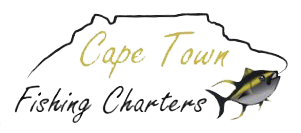Offshore Tuna Fishing
Types of Tuna
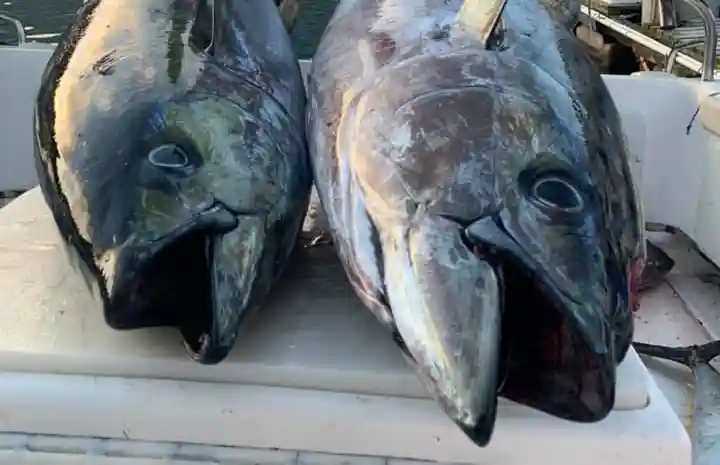
Yellowfin Tuna
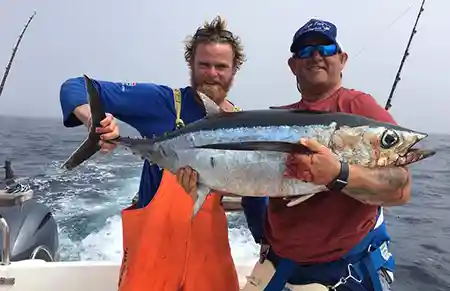
Longfin Tuna
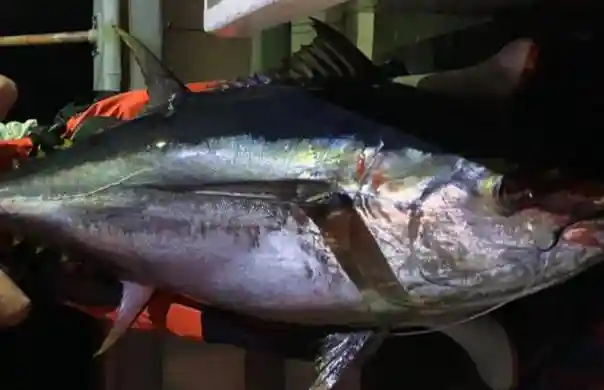
Bluefin & Bigeye Tuna
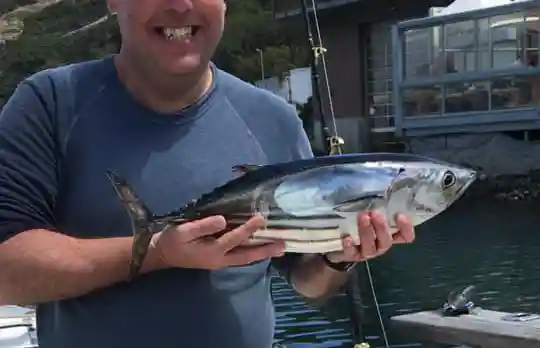
Skipjack Tuna
Book a Charter
Your dream tuna is waiting out there for you. Go tuna fishing with us.
Cape Town Fishing Charters Tuna Tips
About offshore tuna fishing in Cape Town
Cape Town is one of the biggest tuna fishing destinations in the world where shoals of massive fish thrive. Big tuna have historically migrated through the warm current about 30-50 nautical miles offshore where the Indian ocean currents pass below Cape Town. Upwellings bring a biomass of bait fish which in turn attracts bigger fish to feed on them.
Added to this, there is a large commercial hake and kingklip fishing fleet who bring fish up from the depths. When these fish are processed and their guts and heads thrown overboard, it is a free for all for the tuna and in recent years the number of tuna moving into and staying in these waters has increased tremendously.
A huge factor contributing to the protection of the species and why their numbers continue to rise despite the growing number of commercial and recreational fishermen is the weather in Cape Town. Strong winds and big swells throughout the year mean that it is not every day that us fishermen can go and catch so the fish are able to live, feed and breed undisturbed most days of the year. Although it is a pity for fishermen to be dictated by the weather, it is a blessing because it keeps our beloved tuna fishery healthy and safe.
3 ways to catch tuna in Cape Town
On a fishing trip to the deep there are 3 typical fishing methods used to catch tuna and all three require very heavy tackle (fishing equipment).
Once a fish is hooked up, the angler will strap into a black magic and be attached to the rod and reel for maximum leverage. The fight is on and although the fish are strong and one is tempted to use brute strength to win the battle, generally technique, patience and calmness is the best combination.
To hook the fish whilst tuna fishing, here are the three ways:
- Trolling: With a spread of lures including deep and shallow divers, birds, spreader bars and squids, boats will troll around in warm clean blue water where there are signs of life at 6-8 knots of speed.
- Baiting: If the boat finds a zone where it is known there are fish in the area (generally nearby big commercial boats that are processing fish), the skipper will put the boat on a drift, watch the fish finder like a hawk and get the crew to throw chum in the water. The chum will attract tuna to come under the boat where the crew have hidden a hook in some of the pieces of sardine. When a tuna eats the hooks in disguise, the reel screams and its game on.
- Casting/Popping: If birds are diving and tuna are jumping out the water, the boat will drive as close as possible to the feeding frenzy where the angler can cast a popper or lure into the middle of the tuna. Retrieving fast will imitate an escaping bait fish which tuna often eat. Popping can also be effective when drifting and baiting as the tuna feeding on the chum below the boat often get enticed to eat a popper above them. The casting tackle is always less heavy than the trolling and baiting tackle so it is a massive battle and achievement to get one this way.
Taking fresh fish home after a good days tuna fishing
Tuna, especially yellowfin tuna, is absolutely delicious to eat both cooked and raw and with Cape Town Fishing Charters, after a good days fishing you will not leave the boat empty handed. Bring a loin or two home to prepare how you like and/or enjoy some fresh fish at the clubhouse with the crew accompanied by a cold beer or two.
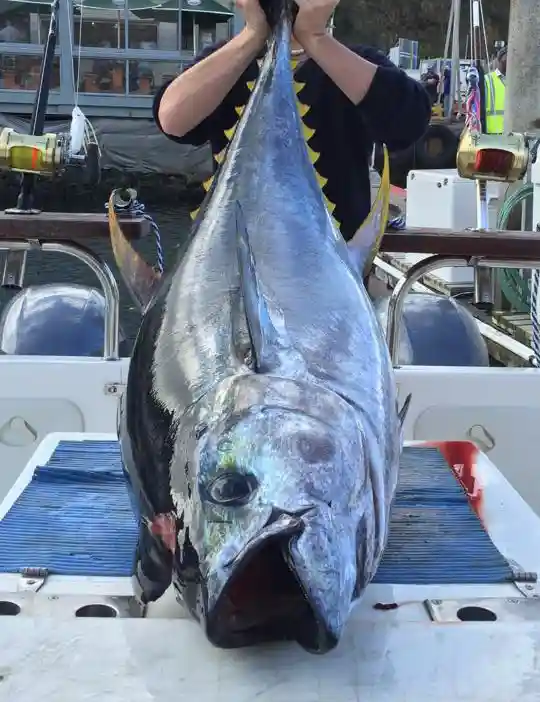
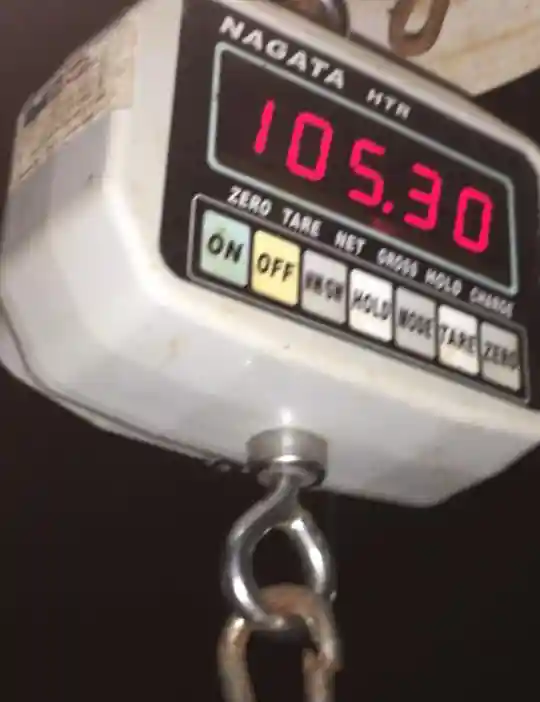
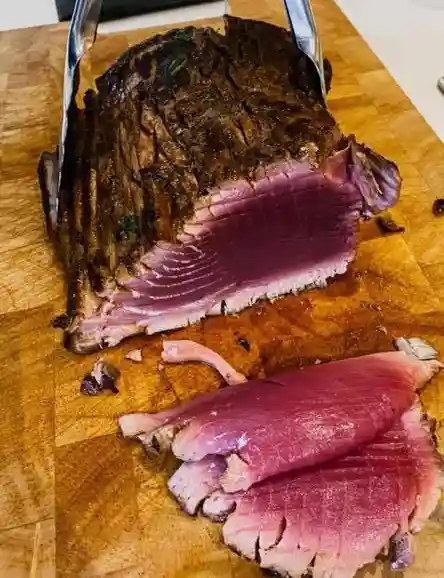
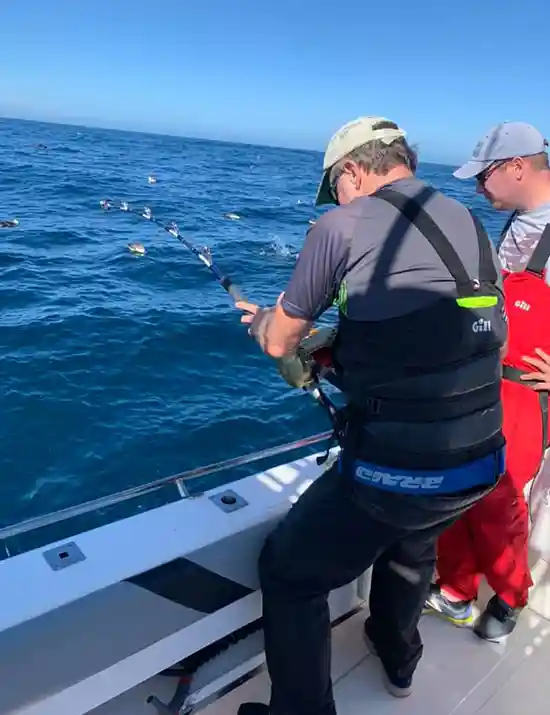
Book a Charter
Your dream tuna is waiting out there for you. Book a charter now.
